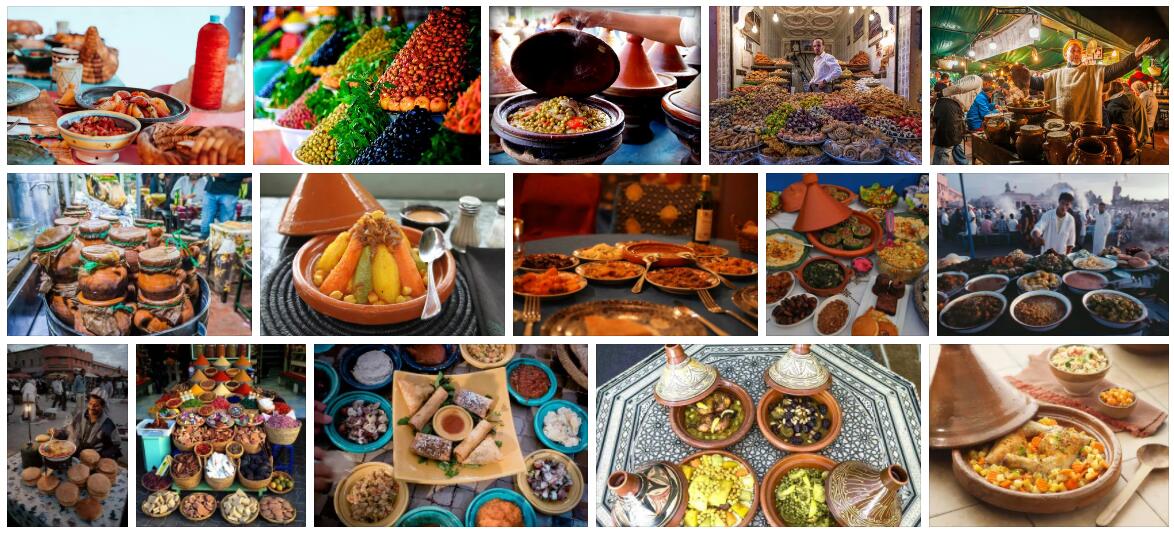Shopping and Eating in Marrakech, Morocco
Marrakech is one of the largest cities in the country of Morocco.
Shopping in Marrakech
In the narrow streets north of Djemaa el-Fna are the souks where you are offered everything, be it gold jewelery, radios, chickens, Bedouin clothes, pirate CDs, drums, handmade rugs, shoes, swords or flowers. Here, you can walk around randomly for days without taking anything with you, and it’s easy to get lost. Merchants are very active and will not let you down until you buy something in Marrakech defined by AbbreviationFinder. Don’t ask for the price of something you can’t imagine buying. And remember that not everything that glitters is gold.
It should be mentioned that most Moroccans are considerably more relaxed than other North Africans. If you have previously been intimidated by the badger tactics (bite until it crunches…) to merchants in e.g. Egypt, Morocco is a breeze because here it is usually respected a specific and friendly no.
Also, don’t take it for granted that everything is reasonable in Morocco. Like everywhere else in the world, you have to pay for quality, and for an untrained eye it may not be easy to see the difference between a masterpiece and a masterpiece. For example, the best rugs can take 12-16 months to make, with hundreds of thousands of knots, and the seller can understandably be offended if you offer him a price equivalent to a cheap machine-woven rug. Having an authorized local guide can be worth your money, both to keep the most current salespeople away, to tip you on quality stores and assist you in haggling.
Handmade Rugs
Among the best bargains you can make as a tourist are handmade rugs. And you should actually be very determined and dismissive to avoid getting into a sales situation. If you first invite you to a carpet shop, sit down and have a cup of tea and a long pleasant chat with the proprietor who probably has a cousin at your exact home, it is very difficult to say no to an offer afterwards, traveling Go and go. Before you know it, you sit and discuss the price of a hundred-dollar blanket that you had no intention of buying at all. And when you finally get lured into saying a price you think the rug is worth, he says, “Agree!” These guys are scary salesmen!
If you do not have the patience or feel confident enough to embark on the mandatory bargaining in the souks, there are places where you can trade Moroccan products at fixed prices. Maybe a little more expensive than in the souks, but considerably faster, and you know you won’t be fooled. In the indoor market Bouchaib you have a good selection of crafts, textiles, pottery and baskets, sables and furniture, jewelry and bags. Returns can of course also be arranged. Bouchaib is located in 7, Derb Baissi Kasbah, Boutouil.
Most shops are open from 0930 to 1300, and from 1600 to 2000. Many shops are closed on Fridays. During the fasting month of Ramadan the opening hours are approx. 1000 to 1500.
Currently, there is no Tax Free Shopping scheme or VAT refund in Morocco.
Eating in Marrakech
The Moroccan cuisine is a delightful blend that reflects both the complex culture of the country and the location at the intersection of the European, Arab and African world. You can taste traces of Arabic, Berber, African, Portuguese, French, Spanish and Jewish food culture.
You will most likely be served chicken and beef during your stay. Most locals prefer lamb, but this is also the most expensive. Spices are actively used in cooking, and here is the saffron king. Mint leaves and lemongrass are also distinctive flavors you will come across. For many meals you will be served couscous, which most have tasted before. Couscous originates from the Berber, but has spread throughout the centuries to the whole of North Africa and the Middle East.
One of the most typical Moroccan dishes is the tajine, which is also the name of the clay pot in which it is both cooked and served. Commonly used lamb with almonds and raisins, but also kefta (meatballs and tomato) and mqualli (chicken and lemon) are popular tajine dishes.
Most people will love Moroccan food and will not feel the need for anything else while visiting the country. In Marrakech there are a few Italian and French restaurants, but otherwise the city is almost devoid of the otherwise ubiquitous international fast food chains. You can enjoy a few bucks at the many food stalls at Djemaa el-Fna, where the selection is huge. Many people may have concerns about eating here, but the food comes fresh from the roasting dish, so it will usually be perfectly safe. As always, it’s wise to steer clear of unprepared salads and meats.
Drink in Marrakech The
Moroccans are very happy in their tea, and this is served almost everywhere, at all times of the day and, in small cups. This is usually green mint tea with a lot of sugar, which is poured into the cups from high altitude.
Coffee is also very widespread, and is most often served with milk.
Although Morocco is a Muslim country, it produces both beer and wine, both red, rosé and white. But it is relatively expensive, unless you manage to find one of the local bars, where you as a tourist are sure to wake up and be in the company of almost exclusively Moroccan men. If, however, you sit in a bar at one of the better hotels, you should be prepared to pay around 40-50 kroner for a 0.33 liter bottle of beer, and considerably more for a drink.






